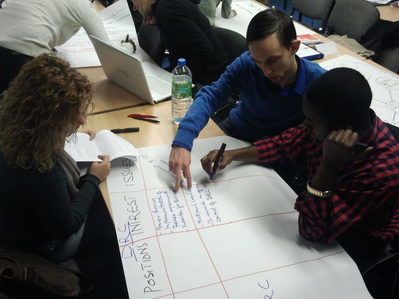Summer School Seminar: Ambivalences of Conflict Resolution
The EU's Responses to Internal and External Crises

Prof. Dr. Lars Kirchhoff / Julia von Dobeneck
In 2017, the European University Viadrina's Summer School will approach theories and current developments with the objective of understanding the "Ambivalences of Europeanization - concepts, conflicts & challenges". In this context, the Center for Peace Mediation offers a course on the ambivalences of conflict resolution in the EU context.
For assignment and more details, please visit the Summer School's website.
COURSE DESCRIPTION
The European Unions raison d´etre as a peace project ending centuries of warfare in Europe has fundamentally shaped its self-understanding as well as its institutional structures and its political role in the European neighborhood and beyond. For instance, the EU has a long history and rich experience as an actor in international mediation and dialogue, ranging from its high-level dialogue facilitation for normalizing relations between Kosovo and Serbia to supporting grassroots peace work in the Philippines. As many other regional and international organizations it has developed its own mediation support capacity within the European External Action Service. However, the EU´s role as a peacemaker has some ambivalent aspects:
The European Unions raison d´etre as a peace project ending centuries of warfare in Europe has fundamentally shaped its self-understanding as well as its institutional structures and its political role in the European neighborhood and beyond. For instance, the EU has a long history and rich experience as an actor in international mediation and dialogue, ranging from its high-level dialogue facilitation for normalizing relations between Kosovo and Serbia to supporting grassroots peace work in the Philippines. As many other regional and international organizations it has developed its own mediation support capacity within the European External Action Service. However, the EU´s role as a peacemaker has some ambivalent aspects:
- First, on precisely which basis of legitimacy does the EU export its normative (peace) concepts into non-EU conflict countries?
- Second, in the light of recent dynamics like the Brexit and popular votes against EU politics: Is it possible that the EU peace project has been prematurely taken for stable and granted, and that a lack in capabilities and structures can be observed to react to internal turbulences and disintegrational dynamics?
- Third, and combining these questions, how will an internally weakened EU "toughen up" (EU Commission President Juncker) its foreign policy as a peacemaker, and which role will professional mediation and a potential European army play in this?

